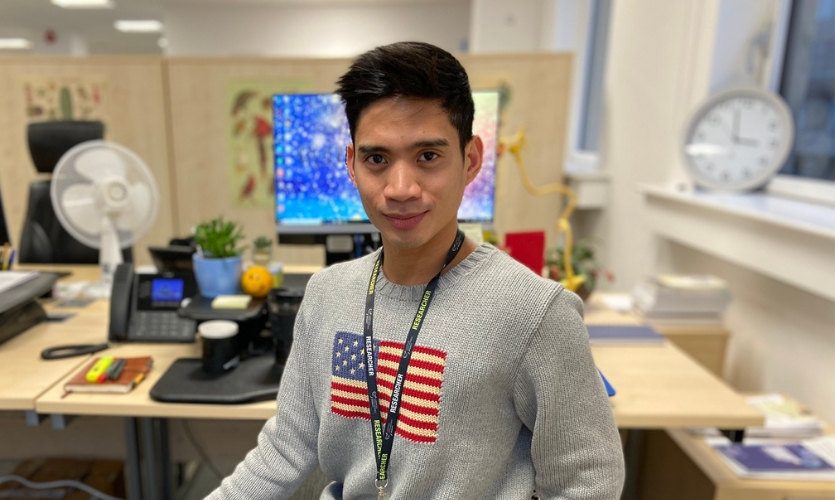Ever thought of applying for a PhD scholarship?
Paul Carreon, who is currently researching Huntington’s Disease at LJMU, explains how ecstatic he was to be awarded a PhD scholarship and how you can apply for one too.

LJMU’s Bicentennial Vice-Chancellors Scholarships are now open, and applicants can apply for a 3-year funded PhD scholarship or Internal Thematic Doctoral Pathway, which is developing LJMU’s own programmes of cohort-PhD offering, until 19 September.
We caught up with Paul to discuss why he applied, what his research within LJMU’s Public Health Institute is currently looking into, and his advice for anyone thinking about applying.
Why did you apply for the PhD scholarship?
It was a natural step to apply for a PhD as I wanted to build upon the findings of my MSc research. I completed my MSc in Public Health at LJMU. My research was accepted for publication and consequently presented my findings at international conferences. This endeavour introduced me to the world of research, and I was impelled to carry on with this journey. I sought advice from my LJMU supervisors, and they recommended to apply for the VC PhD scholarship.
How did you feel when you learnt you’d been accepted?
Ecstatic! I clearly remembered that summer in 2018 and I was on holiday. I briefly checked my email and got the confirmation news. Without hesitation, my friends and I opened a bottle of champagne which called for a celebration.
What is your research looking into?
My research explores the illness experience and meaning of Huntington’s Disease (HD). A rare genetic progressive brain disease that has no cure. I am a neuro-physiotherapist by background. I have observed in my clinical practice that the needs of people diagnosed with HD and their families are often unmet. This is partly because of the disease rarity and complexity of symptoms, which is often misunderstood. Therefore, I want to better understand their illness experience, and how can clinicians better help and support their needs.
How will your research develop over the next two years?
It is my desire that by conducting this type of PhD research can offer valuable insight to the unique experience of people suffering from HD, with the hope to raise better awareness, inspire commitment and set appropriate research priorities for this neurological disease of burden.
What would you say to anyone thinking of applying for a PHD scholarship?
Just go for it. If it is meant to be, it is meant to be.
What does your day-to-day life, weeks and year look like whilst doing a PhD?
I treat my PhD just like work, from Monday to Friday. I wake up at 7am, arrive at my desk around 9am and end at 5pm. I place importance of incorporating daily exercise such as yoga and gym after work. Also, I have my downtime over the weekends. This routine keeps me grounded and balanced around my PhD, other commitments and life in general.
Black, Asian, Minority and Ethnic communities PhD scholarships
Further to the launch of the Bicentenary VC Studentships and in line with our commitment to widening participation LJMU also supports postgraduate research degree of students from Black, Asian, Minority and Ethnic communities who are under-represented within LJMU academic and research careers. The scheme will offer full financial support and a skill development programme, designed to promote both academic and alternative-academic (alt-ac) careers.
To find out more about the Bicentennial Vice-Chancellor three-year PhD scholarships, or to apply, visit the webpage.
Or apply for the Thematic Doctoral Pathways Programme/ find out more information.
Applications close Monday 19th September.


